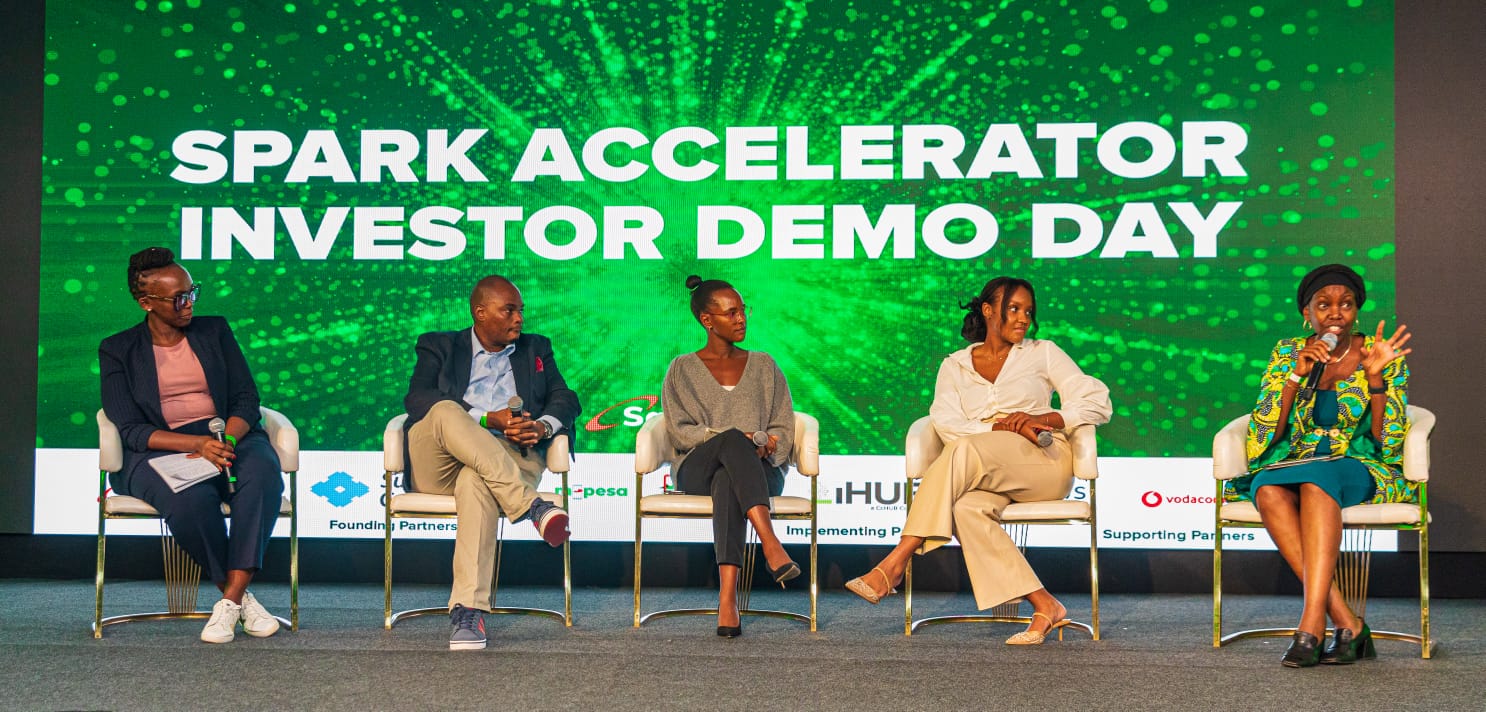

When Roy Bore, the CEO of HealthX Africa, joined the inaugural Spark Accelerator Programme, he wasn’t just thinking about scale or visibility. He was thinking about survival — about what it really takes to build a business that lasts.
Now, with the launch of their new product Afya Daily just around the corner, he reflects on a lesson that changed everything: “If you're not profitable at one customer level, there's no way you'll be profitable when you have a million.”
That focus on unit economics—the ability to understand and refine the core of your business — was just one of the insights that reshaped HealthX Africa’s approach during the months-long program.
Launched in 2024, the Spark Accelerator is a joint initiative by Safaricom, M-PESA Africa, and Sumitomo Corporation, implemented by iHub.
It’s not just about funding or networking — it’s about helping early-stage startups in fintech, productivity tools, and embedded financial services build businesses that can go the distance.
For Bore, the impact was immediate. “The programme gave us the clarity to design Afya Daily—something that delivers everyday wellness tips and access to healthcare, right through Safaricom’s customer network,” he said. “We believe it can be a real tool for scale—something that helps us reach people where they are.”
HealthX was one of nine startups selected for Spark’s first cohort. But theirs isn’t the only story of transformation.
TURNING TRUST INTO GROWTH
At first glance, Nobuk Africa might seem worlds away from a health tech company. But their journey through Spark followed a similar arc—one that began with ambition and grew into something much more grounded: trust.
Nobuk Africa builds financial tools for savings groups and community collectives—offering features like data collection, payment tracking, and automated reporting. Co-founder Elvis Bando knows the value of numbers. But during the accelerator, he saw how much numbers depend on narrative.
“People started associating us with Safaricom,” he said. “That brand recognition changed everything. It gave us trust.”
Beyond credibility, Bando says Spark gave them access to training and resources they had never imagined possible. “The program helped us stabilize our product, and more importantly, it gave us direction. We learned what to focus on, how to grow with purpose, and how to plan with clarity.”
Their current user base? Around 5,000. Their five-year goal? 30 million users across Africa. And Bando believes it’s possible — because now, they’re not just building a tool; they’re building a movement.
A BIGGER VISION FOR KENYA’S STARTUP ECOSYSTEM
While each startup’s journey is unique, they share something in common: the drive to build solutions that respond to real problems—and the hunger to keep learning.
That’s exactly what Spark aims to support.
“Founders don’t just need funding. They need guidance, mentorship, and space to grow,” said Michael Mutiga, Chief Business Development and Strategy Officer at Safaricom. “These startups have spent months refining their business models, testing their ideas, and learning what it takes to succeed. We’re incredibly proud of their growth.”
And Kenya’s startup scene is only getting stronger. In 2024, the country attracted $638 million in startup funding—nearly a third of all startup investment across Africa.
As the programme prepares to welcome its second cohort, the momentum is building. The real test, of course, will come over time—whether these startups can turn mentorship into measurable impact, and ideas into sustainable businesses.
But if the journeys of Roy Bore and Elvis Bando are any indication, they’re well on their way.









